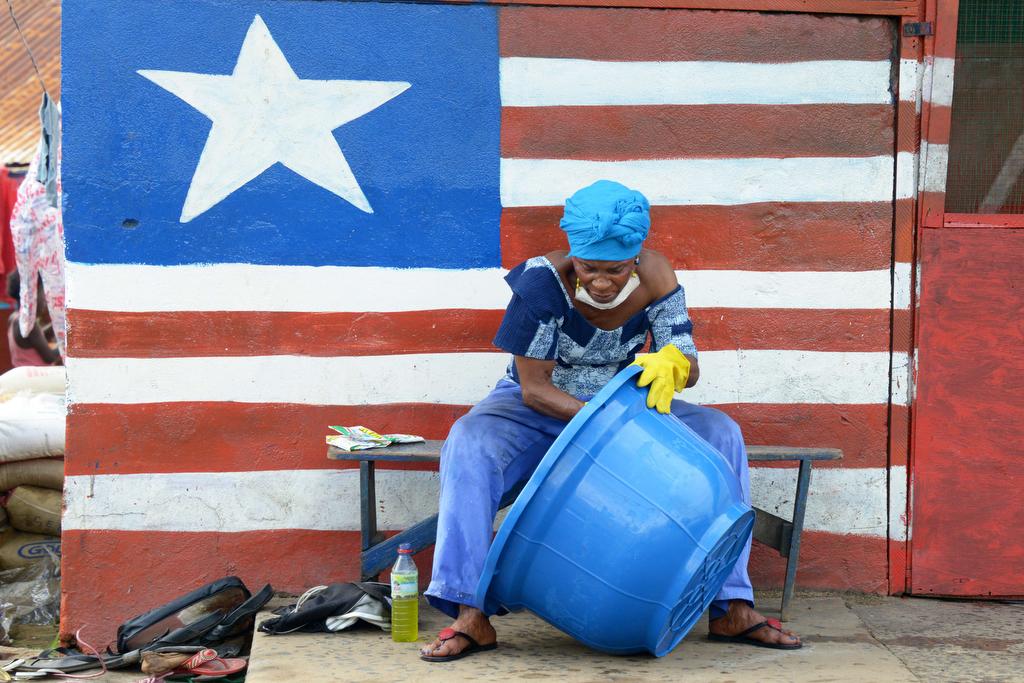11 things you should know about Liberia that have nothing to do with Ebola
A quick Google search for “Liberia” brings up nearly one million news results. Almost all of them are about Ebola. Of the West African nations affected by the disease, Liberia has been hit the hardest, with 2,705 deaths so far and at least 4,665 infected — approximately half the outbreak's overall toll. As the outbreak worsens — and all reports indicate that it will — Ebola is likely to be the only thing we hear about Liberia for some time. And that's a huge problem.
In some ways, it makes perfect sense to associate Liberia with Ebola, given the facts of the outbreak, news coverage of it, and the importance of targeting aid where it's most needed. The problem, though, is that the link between Ebola and Liberia is getting mixed up in a toxic cocktail of racist and ahistorical ideas that treat all African nations as sites of hopeless violence, poverty, and disease. That cocktail takes these ideas and reduces Liberians to African hosts for a terrible African disease.
More from GlobalPost: This map shows which is the deadliest infectious disease where you live
It shouldn't be necessary to remind the world that Liberians are actual human beings, but sadly it is, and efforts to combat the Ebola-related stigma being forced onto Liberians have already begun. Shoana Solomon, a Liberian woman living in the United States, for example, has launched a social media campaign using the hashtag #IamALiberianNotAVirus to send the world a simple, anti-racist message — Liberians are people, not viruses.
With so much focus on Ebola, it's easy to forget the many other things that make Liberia what it is, like its incredible ethnic diversity and fascinating history. Globally, we must be able to battle the ongoing catastrophe in Liberia without forgetting that we're talking about a real place filled with real people and real lives. Talking about Ebola means talking about Liberia, for now. But talking about Liberia shouldn't mean JUST talking about Ebola.
Here are just 11 things you should know about Liberia that have nothing to do with the virus.
1) Liberia was founded as a US colony for freed slaves in 1822
![]() Map of Liberia, c. 1830 (Wikimedia Commons)
Map of Liberia, c. 1830 (Wikimedia Commons)
2) It's one of the most ethnically diverse countries on the planet
![]() (Glenna Gordon AFP/Getty Images)
(Glenna Gordon AFP/Getty Images)
3) The Liberian capital Monrovia was named in honor of US President James Monroe who supported the resettlement of former slaves to Africa
![]() (John Moore/Getty Images)
(John Moore/Getty Images)
4) Liberians celebrate Thanksgiving
![]() (Stan Honda/AFP/Getty Images)
(Stan Honda/AFP/Getty Images)
5) The Liberian flag bears a strong resemblance to the US Stars and Stripes
![]() (AFP/Getty Images)
(AFP/Getty Images)
6) One of the most popular dishes is called 'dumboy,' which is dough made from cassava flour
7) The country is know for its textiles, art, and quilting
![]() (Ken Harper/Flickr)
(Ken Harper/Flickr)
8) Liberian President Ellen Johnson Sirleaf was the first woman elected head of state in Africa
![]() (John Moore/Getty Images)
(John Moore/Getty Images)
9) Liberia recently promised to ending all logging in exchange for $150 million in development aid from Norway
![]() (AFP/Getty Images)
(AFP/Getty Images)
10) Oprah Winfrey's ancestors are from Liberia
![]() (AFP/Getty Images)
(AFP/Getty Images)
11) Liberia is home to a growing hip hop scene, known as "Hipco"
Every day, reporters and producers at The World are hard at work bringing you human-centered news from across the globe. But we can’t do it without you. We need your support to ensure we can continue this work for another year.
Make a gift today, and you’ll help us unlock a matching gift of $67,000!
